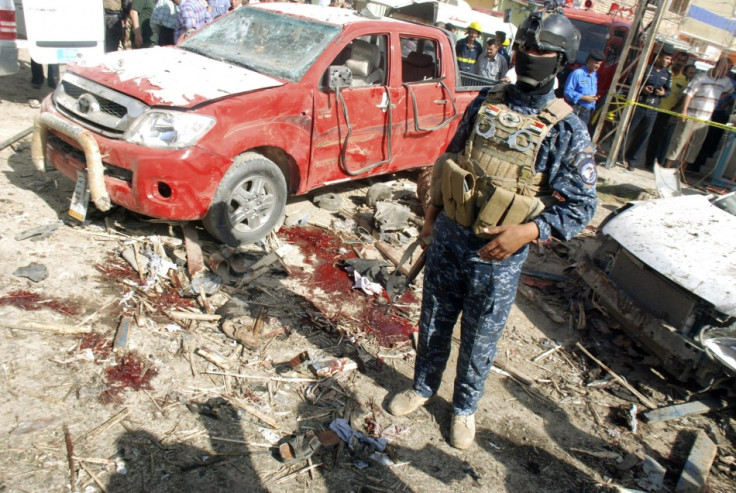Iraq Violence: Insurgents Want to Weaken the State Before Troops Withdrawal

Iraqi officials say gunmen wearing military uniforms pulled seven people from a Sunni mosque south of Baghdad and then shot and killed them, execution-style, the AP reported
The killings happened late Monday just as the country was swept by violent clashes which raised the death toll for Monday to 70 people.
Following reports from officials who spoke on condition of anonymity because they were not authorized to speak to the media, the AP said the gunmen walked into the Sunni mosque in Youssifiyah during evening prayers, took the seven men outside and shot them.
The men were all members of an anti-al-Qaeda militia.
The latest outbreak of violence in Iraq reflects the situation of a country where the government, backed up by the West struggles to fight off insurgency groups.
Despite money and U.S. troops being deployed in the country since the U.S. invasion in 2003, Iraq has not completely recovered its stability and different factions still want to oust both the American troops and the government.
On Monday, two car bombs exploded in a market in the city, killing 35 people and with 42 allegedly coordinated attacks scattered around the country, in forms of suicide attacks, car bombs, homemade bombs and gunmen it marked the deadliest day of this year in Iraq.
The fact that Islamist groups chose to prepare their offensive during the holy month of Ramadan, is most surprising.
The total death toll on Monday reached 89 people, including 3 suicide bombers, while additional 315 people were wounded.
Iraqi and analyst alike now worry that Sunni radicals, lead by Al-Qaeda branches, are slowly regaining momentum and influence over the areas they had previously lost control over.
This year also marks an increase in the killing of American troops with Sunni militants becoming more radical and calling for more violence until U.S. forces leave the country.
Moreover, the country is still divided into many sectarian areas and tensions run high but the latest surge of violence show Iraqis authorities are far from being in control and the many worry the state risks collapsing once foreign troops leave the territory. The insurgents prove they do not feel threatened by the security forces and believe the government is struggling to cope. The Iraqi authorities are asking the United states to leave some troops in the country after the previously set deadline for full withdrawal, a move that may only bolster their belief the government is still weak.
While the Monday attacks remain, for now, unclaimed, an audio message posted on a Web site for Al-Qaeda in Mesopotamia last week said the organisation was preparing a wide scale attack, the Washington Post reported.
"I promise you that we are on the right path," said the spokesman, Abu Muhammad al-Adnani. "Thank God that we are doing very well here."
"Do not worry, the days of Zarqawi are going to return soon," he said, referring to Abu Musab al-Zarqawi, the former leader of Al Qaeda in Mesopotamia who was killed by American forces in 2006. "We have men who have divorced themselves from life and love death more than you love life, and killing is one of their wishes."
Iraq and Afghanistan it seems are in a similar position when it comes to insurgency. It would clearly be very naïve to say that state and institutions building in both countries are a total success. While they might have all the trappings of statehood, their operational capacities remain to some extent limited.
On the other hand, organisations like al-Qaeda and the Sunni radical that side with it have based their fight on the presence of foreign troops. Once the U.S. troops complete their withdrawal, or bring down their number to a minimal, the insurgents know it will be more difficult for them to remain relevant and it seems they have decided to do as much damage as they can to weaken the state and try to destabilise it once foreign troops are gone.
© Copyright IBTimes 2025. All rights reserved.





















